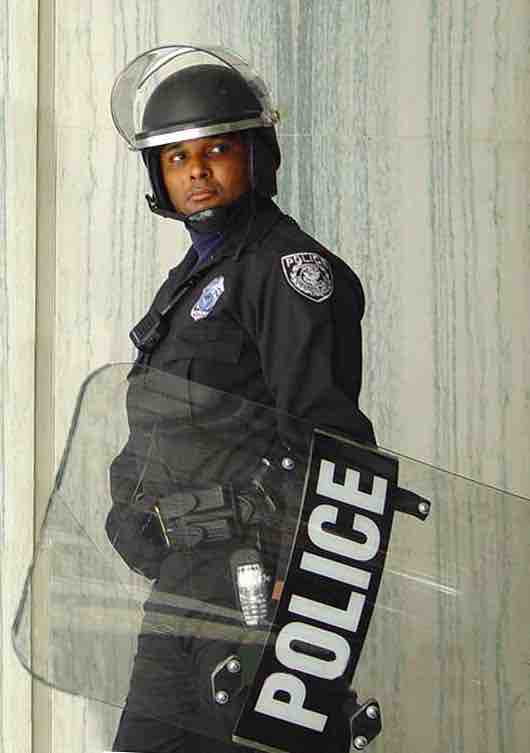Max Weber, in Politics as a Vocation, conceived of the state as a monopoly of the legitimate use of physical force. According to Weber, the state is that entity that "upholds the claim to the monopoly of the legitimate use of physical force in the enforcement of its order. " The state's authority is derived from this: the state can enforce its precepts through force without losing its legitimate authority. This definition of the state has figured prominently in philosophy of law and in political philosophy throughout the twentieth century.
Ownership of territory is another characteristic that Weber deemed prerequisite for a state. Territory is necessary because it defines the scope of the state's authority: use of force is acceptable, but only in the jurisdiction specified by the state's lands. Such a monopoly, according to Weber, must occur via a process of legitimation.
The police and the military are the state's main instruments of legitimate violence, but this does not mean that only public force can be used: private force can be used, too, as long as it has legitimacy derived from the state. The right of self-defense is the right by which civilians acting on their own behalf may engage in violence for the sake of defending one's own life or the lives of others, including the use of deadly force. In any instance where an individual uses force to defend a third party, it must be demonstrated that the third party was in a position that required another individual's intervention. The right of self-defense is a private form of legitimate violence that is recognized by the state.
A Helicopter Operated by Blackwater Worldwide
Blackwater Worldwide is private military company that contracts with the United States to provide military services. States may maintain a monopoly on legitimate violence but outsource its execution by contracting with private parties such as Blackwater.

A police officer
States maintain a monopoly on violence, exercised by police officers.